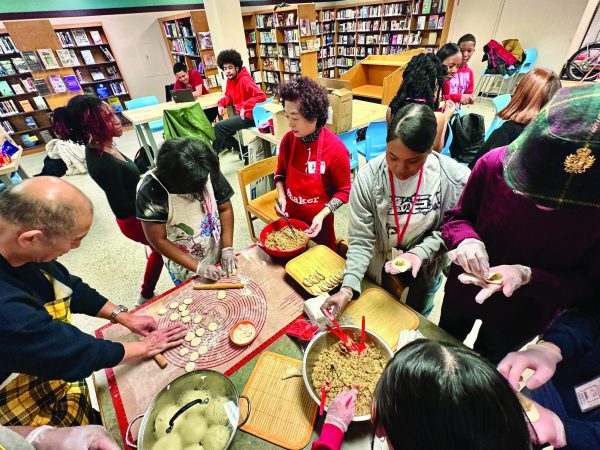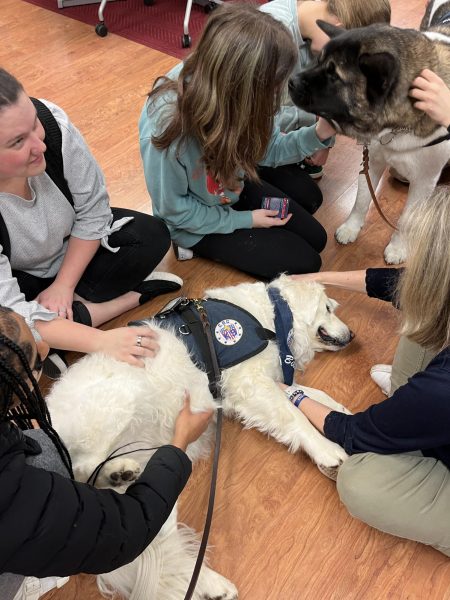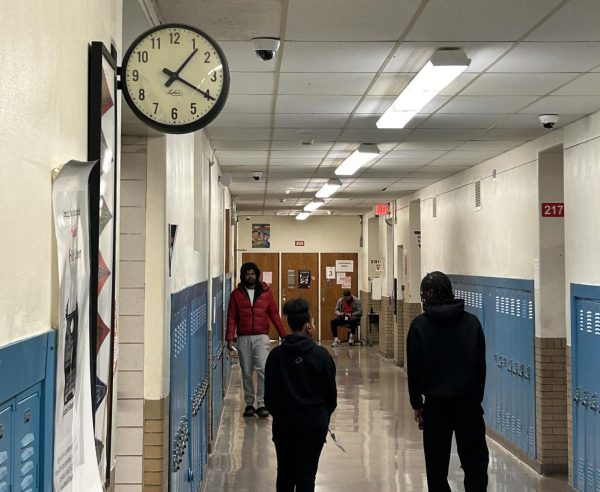I’ll Have a Whole-Wheat Waffle, a Glass of Orange Juice, and a Side of Time
With increasingly busy schedules, breakfasts become second thoughts as students disregard morning meals, let alone healthy ones
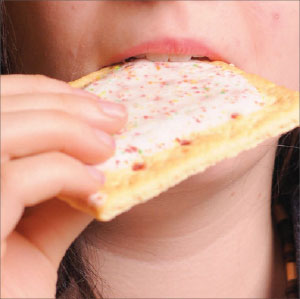
Photo Illustration by Will McKnight
A student eats a Pop-Tart, a popular on-the-go breakfast item and a favorite in high school vending machines. However, with 15 grams of sugar apiece, Pop-Tarts are not advisable for a healthy breakfast.
Breakfast poses a problem to teenagers who want to both eat the meal and want to get to school on time. It is the first meal of the day to break the fast you had while you slept. With increasingly busy schedules, however, high school students often skip the meal.
“I’m usually too tired to eat breakfast,” said senior Ethan Shafron. “I could eat breakfast, or I could be on time.”
Shafron is not alone. In a survey conducted of 50 Shaker Heights High School students, 35, or 70 percent, said they ate breakfast each day, but 15, or 30 percent, said they do not.
Dr. Nicole Lidyard, a dietitian at University Hospitals, cautioned against skipping breakfast. “Breakfast is certainly the most important meal of the day,” she said. “It helps jump-start your metabolism.” Lidyard explained, saying that breakfast improves your overall concentration throughout your entire day.
However, eating breakfast has not always been a normal practice. The Romans viewed it as gluttony, and in the Middle Ages no one ate meals before the daily morning mass. Only with the Industrial Revolution did breakfast become popular, as workers and bosses needed an early meal to sustain themselves for a day of factory labor, according to BBC News Magazine.
A survey respondent who said he did not eat breakfast, freshman Henry Murray, said time constraints prevent him from eating before school everyday. “I think it is important,” he said, “but it is about if you have time to eat breakfast in the morning.”
Freshman Cory Henderson faced the same predicament. “I wish I could eat breakfast, but I stay up decently late and don’t have time,” Henderson said. “I wake up late, around 7:15, and go to sleep around 10:00,” he said
Students and teachers who eat breakfast have assorted reasons for doing so. “It keeps you energized throughout the day,” freshman Essence Redick said.
Sophomore Louis Schwartz is a breakfast believer as well.”I’m kind of rushed to eat, but I never forget,” he said. “And if I do forget, I always keep a granola bar in my backpack.”
Science teacher William Scanlon agreed, calling breakfast “essential.” Scanlon said he needs breakfast to keep up his own energy throughout the day.
History teacher Paul Kelly analyzed the subject metaphorically. “I think that your body is like your car,” said Kelly. “If you don’t put both enough and quality gas in your car, you stall out.”
Shaker students’ breakfast problems go beyond whether they eat the meal. Another issue is whether students eat nutritious breakfast foods that sustain them throughout the day. Students in a first period, 10th grade health class recorded their breakfasts for one week.
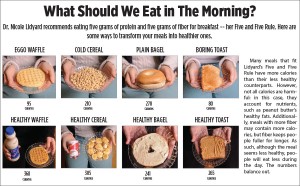
An info graphic of what Nicole Lidyard thinks we should eat for breakfast for the most health and energy.
Answers were varied. Altogether, the breakfast log found a scarcity of healthy breakfasts. In the health class, 12 students filled out the log, and from Dec. 1-5, students ate 21 bowls of cereal and 11 servings of bacon. Some students wrote “gum” and “chips” on their breakfast logs as their morning meal.
Nine individuals wrote that they skipped breakfast certain days, and ate it other days. The most common day to skip breakfast was Monday.
Lidyard said these are not ideal breakfast foods. “The perfect breakfast follows a rule. It has to have five grams of fiber and five grams of protein,” she said. She used the five and five rule to create her most nutritional breakfast ideas.
Natalie Martin, a senior, eats a breakfast that happens to follow the five and five rule. Martin said, “I normally have to have two breakfasts.” First, she has two bananas and chai tea at home. “When I walk to school, I have two pieces of toast with strawberry jelly on them.” Martin walks to school daily.
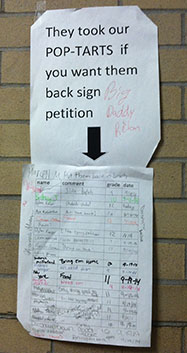
A petition protests the absence of Pop-Tarts in the school cafeteria.
Grabbing a piece of buttered toast or a Pop Tart may seem easier to busy students who must finish last-minute homework, brush their teeth like the Flash and run to school. However, a healthy breakfast could do more than energize you: it could help you do better at school.
“Students who eat a low-glycemic, balanced breakfast may have better concentration and more positive reactions to difficult tasks than students who eat a carbohydrate-laden breakfast,” according to Eating Healthy.com.
Henderson agreed. “When I eat [breakfast], I am more focused at school,” Henderson said.
“There’s lots of research that shows our brain needs food in the morning to be more focused,” Lidyard said.
Kendra Agee-Barney, the 10th grade health teacher whose class took the breakfast survey, emphasized breakfast’s importance for student health as well. “I think that your body will tell you how much it needed breakfast once you eat it,” she said. “You’ll feel better after you eat it.”
This story appears in Volume 85, Issue 3 of The Shakerite, Pages 25-26.

